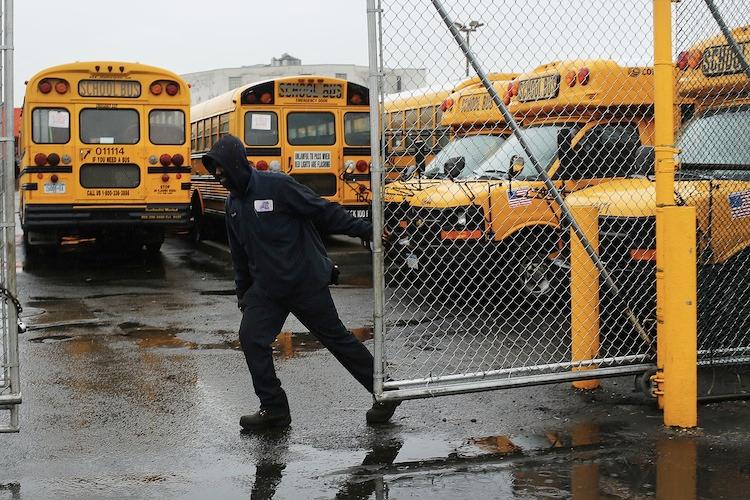NEW YORK—School bus drivers are excited to get back to work after beginning a strike about one month ago. Drivers will be back on the job on Wednesday.
“I can’t wait. I can’t wait to go back,” said Evelyn Catalano, a Brooklyn bus driver. “We’re all happy.”
The strike was called off late Friday evening in a conference call after a letter sent by five Democratic candidates for mayor told the bus drivers union they will revisit the subject if any of them get elected in November.
Catalano said she agrees with the union head’s decision to call off the strike.
“We all agree, because we know he’s out looking for us, for our protection,” she said. “It’s not an easy job, it’s a big responsibility, being a school bus driver. The parents put their whole trust in us for their children’s lives. That makes you feel good.”
Mike Allen, whose daughter Trinity attends Cooke Center Grammar School, was pleased to hear about the end of the strike.
“I think it’s good, that it’s over with, that they came to a decision,” Allen said.
Trinity’s bus still ran during the strike, but bus drivers and matrons, who help special education children on buses, changed a lot, said Allen. Also, her classmates were affected much more.
“It also affects the mood in the classroom,” he said. “She has certain classmates that haven’t been to school since the strike.”
Thousands of bus drivers began a strike on Jan. 16 over the new contracts being bid out; which don’t include the Employee Protection Provision, which they say is key in protecting seniority.
The union and officials will continue negotiating while the drivers return to work.
“Our bus drivers and matrons look forward to getting back to work and doing the important job of safely transporting the students, who are like our own children, to and from school each day,” said Michael Cordiello, president of Local 1181, the school bus driver’s union, in a newsletter.
The end of the strike signals a defeat for the union, which had hoped to force Mayor Michael Bloomberg’s administration to re-write the contracts to include the same provisions as before.
Yet drivers interviewed on Monday sounded pleased to return to work, and hopeful that after Bloomberg leaves office, his successor will revisit the contracts and re-work them in the union’s favor.







